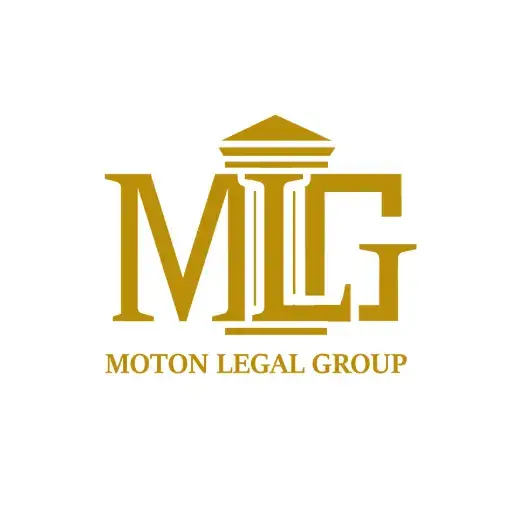If you’re diving into purchasing a business, the term buying a business contract might seem daunting at first. Understanding just what a business purchase agreement encompasses can be the key to a smooth transaction. Here’s what you need to know right off the bat:
What is a buying a business contract?
1. Purpose: It formalizes the sale’s terms and ensures legal protection.
2. Parties Involved: Both the seller and buyer need to be clearly outlined.
3. Components: Details about the transaction such as assets being sold, the purchase price, and payment terms.
When you’re ready to seal the deal, each step you take can either protect your investment or pose potential pitfalls. From assessing financial health to navigating legal jargon, having a detailed understanding and the right guidance is essential.
I’m M. Denzell Moton, Esq, a seasoned attorney with expertise in simplifying the complexities of business transactions. From my roots in South Carolina to my legal journey at Samford University, helping clients through the nuances of a buying a business contract is my passion.

Stay tuned to find more about how to steer these crucial contracts with confidence.
Buying a business contract terms made easy:
– business asset purchase agreement
– how to write a business purchase agreement
– small business acquisition lawyer
Understanding Business Purchase Contracts
When you’re on the path to buying a business, one of the first problems is understanding the business purchase contract. This document is more than just a piece of paper; it’s your roadmap to a successful transaction. Let’s break down what you need to know.
What is a Business Purchase Agreement?
A business purchase agreement is a legally binding document that outlines the terms and conditions of a business sale. It ensures that both parties—the buyer and the seller—are on the same page. This agreement addresses everything from the sale price to the assets included in the transaction.
Key Takeaways:
– Legal Protection: It safeguards the interests of both parties.
– Clarity: It clearly defines what is being sold and at what terms.
– Finality: Once signed, it becomes a binding contract.
The Role of Legal Counsel
Navigating the complexities of a business purchase contract can be overwhelming. This is where legal counsel comes into play. An experienced attorney can help you understand the legal jargon, identify potential risks, and negotiate terms that protect your interests.
Why You Need Legal Counsel:
– Expertise: Legal experts can spot red flags and ensure compliance with all relevant laws.
– Negotiation: They can negotiate on your behalf to secure favorable terms.
– Risk Mitigation: They craft clauses to minimize potential risks.
Components of a Business Purchase Agreement
Understanding the structure of a business purchase agreement can make the process less daunting. Here are the typical components you’ll encounter:
- Parties: Identifies the buyer and seller, including their legal names and contact information.
- Description of Business: Details the business being sold, including its assets and liabilities.
- Sale Terms: Specifies the purchase price and payment terms.
- Covenants: Outlines the responsibilities of each party before and after the sale.
- Transition: Defines the roles of both parties once the sale is complete.
- Closing Details: Includes logistics like the closing date and transfer of ownership.

Real-World Example
Consider the story of Sue and Kay Cho, who purchased City Laundry Services, LLC. Their agreement included a detailed list of assets like equipment and trademarks and specified a purchase price of $20,000. With legal counsel, they ensured the agreement included all necessary contingencies and indemnifications to protect their investment.

In summary, understanding the intricacies of a business purchase contract is crucial for a smooth and successful transaction. With the right legal guidance, you can steer these contracts confidently and protect your investment.
Stay with us as we dig into the key components of a business purchase agreement, shedding light on each section’s significance.
Key Components of a Business Purchase Agreement
When diving into a business purchase agreement, know the key components that make up this crucial document. Each section serves a specific purpose in ensuring a smooth transaction.
Parties
This section is straightforward but vital. It lists the legal names and contact details of both the buyer and seller. For example, in a transaction involving Sue and Kay Cho buying City Laundry Services, the agreement clearly identified both parties. Accurate identification helps avoid legal complications later.
Description of Business
Here, you’ll find a detailed overview of the business being sold. This includes its location, purpose, products or services, and financial health. It also confirms the seller’s legal right to sell. This part ensures both parties understand exactly what is being bought and sold.
Sale
The sale section is where you’ll see the purchase price and what it includes. It details assets like equipment, inventory, and goodwill, and specifies any exclusions. For Sue and Kay Cho, their purchase price was $20,000, covering various assets.
Covenants
This outlines each party’s responsibilities before and after the sale. It may include tax liabilities, non-compete clauses, and confidentiality agreements. These covenants protect both parties and ensure a smooth transfer of ownership.
Transition
The transition section defines what happens post-sale. It clarifies roles, such as whether the seller will assist in training new employees or help introduce the buyer to key contacts. This part is crucial for maintaining business continuity.
Brokers
If brokers are involved, this section names them and specifies who pays their fees. This ensures transparency and avoids disputes over broker payments.
Closing
The closing section covers the logistics of the transaction. It specifies the closing date and time, how payments will be made, and how ownership will be transferred. For Sue and Kay Cho, closing was set for a specific date at a real estate office.
Appendices
Finally, appendices include any additional documents that support the agreement. These might be letters of intent, financial statements, or marketing plans. They provide comprehensive information to back up the terms of the deal.
Understanding these components is vital for anyone involved in buying a business. Each section plays a role in protecting your interests and ensuring a successful transaction.
Next, we’ll explore how to craft a business purchase agreement, guiding you through each step of the process.
How to Write a Business Purchase Agreement
Crafting a business purchase agreement can seem daunting, but breaking it down into steps makes it manageable. Let’s explore the process, step by step.
Identify the Parties
Start with the basics: who’s involved? Clearly list the legal names, addresses, and contact information of both the buyer and the seller. This is crucial for legal clarity and to avoid any mix-ups. For instance, in the purchase of City Laundry Services, Sue and Kay Cho were identified as the buyers, with Ephren W. Taylor as the seller.
Describe the Business
Next, detail the business being sold. Include the nature of the business, its location, and any unique features. This is where you confirm the seller’s legal right to sell. Think of it as a business profile that gives a comprehensive view to the buyer. For example, City Laundry Services was described with its market and operational scope.
Outline Financial Terms
Money matters. Specify the purchase price and how it will be paid. Will the payment be a lump sum or installments? Include details like deposit amounts and financing terms. For Sue and Kay Cho, the $20,000 purchase price was broken down into a deposit and a balance due at closing.
Elaborate Terms of Sale
Detail what’s included in the sale. This could be tangible assets like equipment or intangible ones like goodwill. Also, note any liabilities the buyer will assume. Clarity here prevents future disputes. For instance, the Cho’s agreement included assets valued at $15,000.
Clarify the Transfer Process
Explain how the ownership will transfer. This includes employee transitions, customer account handling, and any necessary training. It’s about ensuring a smooth handover. Specify who’s responsible for what during this phase to maintain business continuity.
Provide Closing Details
Finally, set the stage for closing. Specify the date, location, and method of final payments. Address any title transfers or last-minute details. This is the finish line, so ensure all steps are clear to both parties. In the City Laundry Services deal, the closing was precisely scheduled at a real estate office.
By following these steps, you can create a clear and comprehensive business purchase agreement. Each section plays a critical role in ensuring a smooth transaction for all parties involved.
Next, we’ll dive into the essential considerations when buying a business, including due diligence and contingencies.
Buying a Business Contract: Essential Considerations
When it comes to a buying a business contract, understanding the essential considerations can make or break your deal. Let’s unpack the key elements that need your attention.
Due Diligence
Think of due diligence as your detective work. Before you buy a business, you need to verify all the seller’s claims. This involves reviewing financial records, legal documents, and tax filings. It’s like checking under the hood before buying a used car. If you find any discrepancies during this process, it could lead to renegotiations or even a decision to walk away from the deal.
Contingencies
Contingencies are the “what if” clauses in your contract. They outline conditions that must be met for the deal to proceed. Common contingencies include securing financing and satisfactory due diligence results. If these aren’t met, you can back out without penalty. For example, if a UCC search reveals unexpected liens, you might have a contingency allowing you to cancel the purchase.
Indemnification
Indemnification is your safety net. It protects you from any liabilities or claims related to the business’s past actions. It’s like a “you break it, you fix it” policy. If the seller failed to disclose a pending lawsuit, indemnification ensures they handle any legal fallout, not you.
Non-Compete
A non-compete clause prevents the seller from opening a competing business nearby. Imagine buying an ice cream shop only to have the seller open a new one next door. A well-crafted non-compete agreement can prevent this scenario, typically restricting the seller from competing within a certain radius and time frame.
Tax Liabilities
Finally, address tax liabilities. Determine who is responsible for any unpaid taxes or future tax obligations. This can prevent unexpected tax bills from landing on your doorstep. For instance, a Certificate of No Tax Due might be a requirement before closing to ensure there are no hidden tax issues.
By understanding these considerations, you can steer the complexities of a business purchase agreement with confidence. Next, we’ll tackle common questions about buying a business contract, including what happens if you decide to back out.
Frequently Asked Questions about Buying a Business Contract
How does buying a business on contract work?
When you buy a business on contract, you enter into a business purchase agreement. This legal document outlines the terms and conditions of the sale. It specifies what you’re buying, like assets or shares, and details the payment terms.
Ownership transfer happens once all conditions in the contract are met. This process can include transferring titles, licenses, and other necessary documents to the new owner. It’s like getting the keys to a new house only after the paperwork is complete.
Can I back out of a business purchase agreement?
Backing out of a business purchase agreement isn’t simple. It depends on the terms listed in the contract. If you have contingencies like financing approval or due diligence results that aren’t met, you might be able to withdraw without facing legal consequences.
However, if you decide to back out without a valid reason, you could face penalties. These might include losing your deposit or even legal action for breach of contract. Always discuss potential exits with legal counsel before making a move.
Who prepares a business purchase agreement?
Typically, a business purchase agreement is prepared by legal counsel. Lawyers ensure the contract complies with all applicable laws and includes necessary clauses to protect both parties. They can also help with negotiation to make sure the terms are favorable.
While lawyers draft the document, input from accountants and brokers may also be needed. They provide insights on financial and operational aspects, ensuring the agreement reflects the true value and condition of the business.
Conclusion
At Moton Legal Group, we believe in empowering our clients through knowledge and guidance. Navigating the complexities of a business purchase agreement can be daunting, but with the right legal support, it becomes a manageable and clear process.
Our approach is centered on client empowerment. We don’t just offer legal advice; we ensure you understand every aspect of your business purchase contract. From identifying the parties involved to outlining the financial terms and addressing potential contingencies, our team is here to guide you every step of the way.
Legal guidance is crucial in any business transaction. Our experienced attorneys are well-versed in the nuances of contract law and business transactions. We make sure your interests are protected and that the agreement is custom to your specific needs. Whether it’s drafting a new contract or reviewing an existing one, we provide personalized counsel to help you make informed decisions.
By choosing Moton Legal Group, you gain a partner dedicated to your success. We are committed to helping you build a solid foundation for your business ventures. For more information on how we can assist you with your business purchase agreement, visit our business agreement drafting service page.
Your journey in buying a business doesn’t have to be complicated. Let us help you steer the legal landscape with confidence and clarity.

